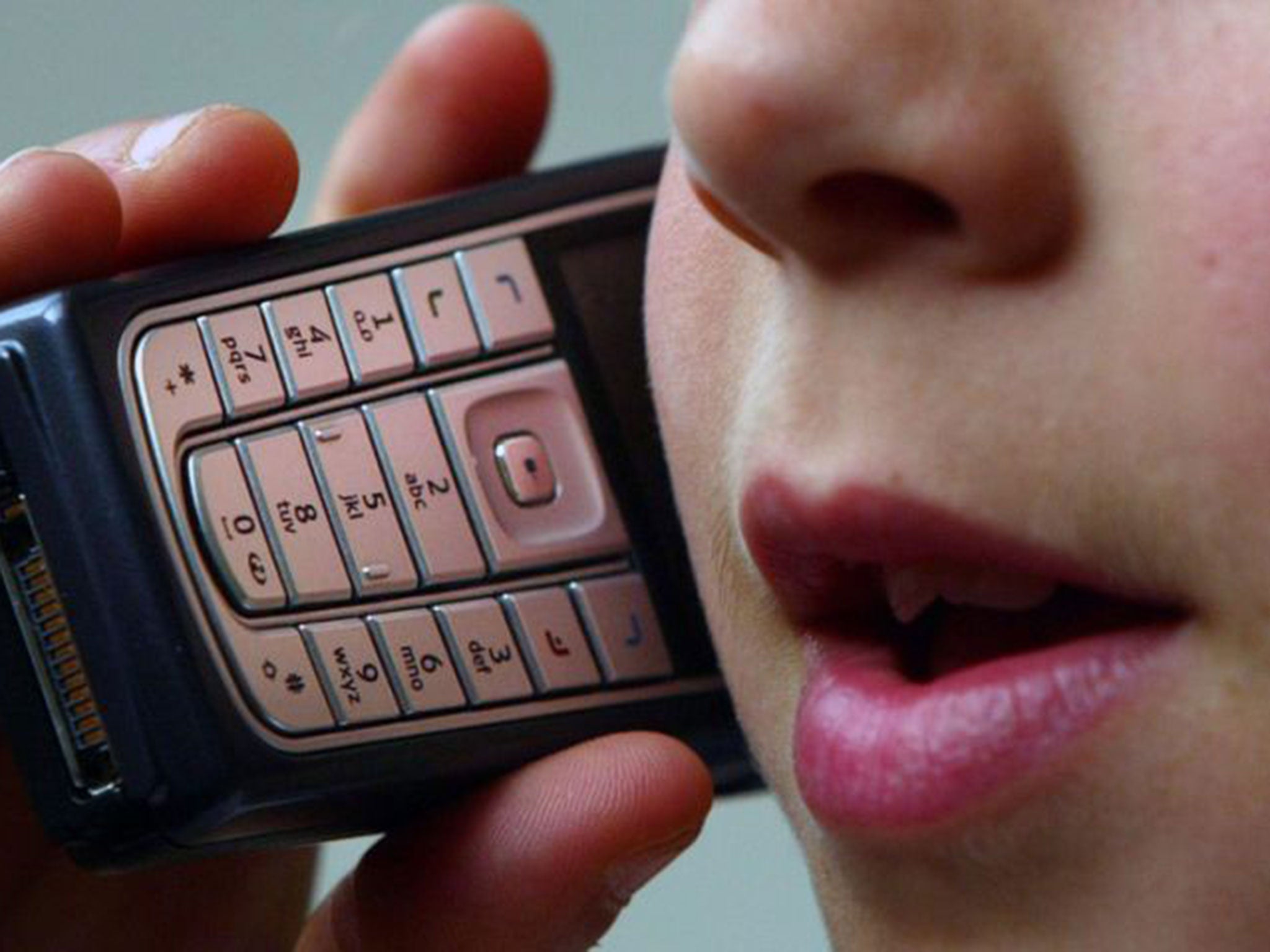Thousands of London teenagers recruited to study how mobile phones affect their brains

Your support helps us to tell the story
From reproductive rights to climate change to Big Tech, The Independent is on the ground when the story is developing. Whether it's investigating the financials of Elon Musk's pro-Trump PAC or producing our latest documentary, 'The A Word', which shines a light on the American women fighting for reproductive rights, we know how important it is to parse out the facts from the messaging.
At such a critical moment in US history, we need reporters on the ground. Your donation allows us to keep sending journalists to speak to both sides of the story.
The Independent is trusted by Americans across the entire political spectrum. And unlike many other quality news outlets, we choose not to lock Americans out of our reporting and analysis with paywalls. We believe quality journalism should be available to everyone, paid for by those who can afford it.
Your support makes all the difference.Schoolchildren in London will be recruited into the largest ever study to investigate the impact of mobile phone use on teenagers’ developing brains.
From today, more than 160 secondary schools in the capital will be invited to take part in the study, with scientists hopeful of securing 2,500 year seven pupils whose mobile phone use will be tracked for three years, with tests carried out to determine whether there has been any impact on their cognitive skills.
The study, led by researchers from Imperial College London, will seek to fill in one of the last remaining gaps in our knowledge on the safety of mobile phone use.
To date there has been no convincing evidence that exposure to radio waves affects health in adults, and previous fears that our mobile phones might be increasing our risk of brain cancer have been conclusively ruled out.
However, the researchers said that there was a lack of reliable evidence on the impact of mobile phones, and other wireless technologies, on the brains of young people.
It has been suggested that the developing brain and nervous system may be more vulnerable to radio frequency exposures. The two parts of the brain which are closest to a mobile phone held to the ear – the frontal and temporal lobes – are essential to higher cognitive functioning and are still developing throughout adolescence.
Despite a lack of concrete evidence that mobiles actually cause harm, current UK health guidance employs the precautionary principle and advises that children under 16 should be encouraged to use mobile phones for essential purposes only, where possible use a hands-free kit or send a text, and keep any calls brief.
Professor Paul Elliott, director of Imperial’s Centre for Environment and Health, said it was important to strengthen the evidence base on mobile phone safety, in order to give better advice to parents and children.
“Scientific evidence available to date is reassuring and shows no association between exposure to radio frequency waves from mobile phone use and brain cancer in adults in the short term. But the evidence available regarding long-term heavy use and children’s use is limited and less clear,” he said.
70 per cent of 11-to-12 year olds in the UK now own a mobile phone, a figure which rises to 90 per cent by the age of 14. The researchers hope to capture this major increase in usage by studying pupil’s use between years seven and nine of secondary school.
All year seven pupils at any school that agrees to take part will be able to be involved in the research, which will be known as the Study of Cognition, Adolescents and Mobile Phones (SCAMP).
Pending consent from the child and their parents, researchers hope to be able access data on their levels of mobile phone use from the network provider. Computerised tests which assess children’s reaction, memory and spatial awareness will BE carried out to measure cognitive function.
Around 500 children will be invited to take part in a more detailed part of the study, in which they will be provided with "personal radio frequency meters", which will measure their levels of exposure to radio frequency waves from their phones and other wireless devices over 48 hours.
The study, which will cost just under £1 million, is being carried out under the Research Initiative on Health and Mobile Telecommunications (RIHMT) programme, which is jointly funded by the Department of Health and mobile phone companies.
Imperial’s Dr Mireille Toledano, the study’s lead investigator, said that by assessing children in year seven and year nine, the researchers would be able to see how cognitive ability developed in relation to changing mobile phone use.
“As mobile phones are a new and widespread technology central to our lives, carrying out the SCAMP study is important in order to provide the evidence base with which to inform policy and through which parents and their children can make informed life choices,” she said.
Read More: Compare providers and find the best deals with our Mobile Phone Deals page
Join our commenting forum
Join thought-provoking conversations, follow other Independent readers and see their replies
Comments